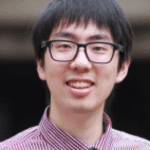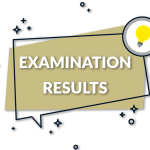Biology Tuition Singapore
Annually, our tutors always help students of all abilities to achieve their academic goals
About 35% of our clients are MOE teachers and university/NIE lecturers. They trust what our tutors teach their own children.
The proven expertise of our carefully-chosen star tutors makes it possible for students' grades to improve between 10 to 30 marks in 2 semesters.
Our 5 co-founders are former senior teachers/HODs from Singapore's top primary/secondary schools and junior college.
We have over 33,000 active and experienced tuition teachers, and will show you tutor profiles within 6 hours.
Biology Tuition Singapore | Biology Tuition A Level | Biology Tuition O Level | IB Biology Tuition Singapore | Private Tutor
Since 2011, Professional Tutors Singapore has been the consistent leader in the education industry because of the quality of our tutors.
Every year, the syllabus gets more difficult, and the exam requirements are increasingly more demanding.
Competition to get into the good classes and universities is very intense.
Stress levels are sometimes overwhelming, and parents are worried that their children will be left behind or excluded once they get erratic grades.
Professional Tutors has established a very strong reputation for our ability to attract the best and most successful tuition teachers in Singapore to be part of our team.
Outstanding, high-quality and credible tutors make it possible for our students to receive the reliable and effective academic help that they need, in order to perform much better.
Our 33,000 qualified tutors have 2 clear objectives:
1. Dependably and systematically prepare you for your next assessment/exam
2. Quickly and competently help you score maximum marks for each exam section
Take Control Of Your Grades Today
Primary School Tuition
Secondary School Tuition
Integrated Programme Tuition
International Baccalaureate Tuition
Junior College Tuition
Polytechnic Tuition
University Modules Tuition
Biology Tuition Singapore | Biology Tuition A Level | Biology Tuition O Level | IB Biology Tuition Singapore | Private Tutor
Hire Singapore's Most Successful Tuition Teachers
Biology Tuition Singapore | Biology Tuition A Level | Biology Tuition O Level | IB Biology Tuition Singapore | Private Tutor
Tutors: Please ensure that you have registered at: https://professional-tutors.com/tuition-jobs-better-assignments-fast/
We are not able to accept any tutor registrations through this Hire Tutors Form. Thank you.
Biology Tuition Singapore | Biology Tuition A Level | Biology Tuition O Level | IB Biology Tuition Singapore | Private Tutor
We are confident that you will succeed








Singapore's largest team of qualified tutors
- Choose from MOE teachers, experienced tuition teachers with PhD/Master’s/Bachelor’s, or who are proficient university undergraduates
- Whether your dream is to start your own business, or to work for a prestigious MNC – the most important and useful immediate objective would be to receive the best academic guidance now, so that your grades can open many more important doors for you
- Annually, our tutors always help students of all abilities to achieve their academic goals
Satisfied clients every year since 2011
- Students benefit from our experience, quality tuition teachers, track record, and superior reputation
- Within 6 hours, our 20+ resourceful tuition coordinators (all of them have graduated from NUS, NTU and SMU) ensure that you can easily choose and hire the ideal tutor that fits your criteria
- 100% successful matches. Every time
- No agency fees. You pay only for lessons conducted
Biology Tuition Singapore | Biology Tuition A Level | Biology Tuition O Level | IB Biology Tuition Singapore | Private Tutor
Proven methods to score higher grades
- Our private tutors show you the important patterns and links in each chapter, and how to answer challenging application questions
- We teach you why and how to focus on the most crucial aspects of textbook content
- You will learn correct answering techniques so that your responses are specific and never off-point
- Practice worksheets/past exams with an acknowledged expert, so that your mistakes can be quickly and patiently corrected
Latest MOE syllabus, and exam marking scheme requirements
Our experienced and committed tutors will help you:
- Answer difficult exam questions
- Correctly prepare for your homework/projects
- Understand and revise every chapter
- Learn ahead of the syllabus
- Identify, avoid and prevent careless mistakes
Biology Tuition Singapore | Biology Tuition A Level | Biology Tuition O Level | IB Biology Tuition Singapore | Private Tutor
We have the education industry's most admired tutor database
- Tutors know that we are very careful and highly selective during the matching process
- We do not accept under-performing tutors in our team/database
- Professional Tutors therefore attracts tuition teachers who have already acquired and maintained an impressive track record of helping their students’ grades consistently and substantially improve
Our 5 co-founders collectively have over 70 years of experience in the field of education
- Also, our Advisory Panel comprises former MOE school principals, subject Heads of Department, and senior teachers
- This ensures that our tutors are firmly on track to teach the latest MOE syllabus, and are familiar with the exam requirements and marking schemes, as well as the requisite answering techniques
Biology Tuition Singapore | Biology Tuition A Level | Biology Tuition O Level | IB Biology Tuition Singapore | Private Tutor
Critical thinking is very important to obtaining strong overall analytical skills.
Effective critical thinkers are able to think clearly and rationally and understand the logical relations between data points and ideas.
Data and content form the core of the essence of what you need to learn for your exams.
You need to identify patterns in the data and content that are given in your text books, and also to correctly convey your analysis of the data to exam markers, in order to earn crucial exam marks.
In every exam/assessment that we take from P1 to post-doctoral level – and especially once we start working after graduation – we need to objectively analyze complex problems to form a judgment and the best response to make.
When you want to arrive at rational answers, critical thinking is a very important skill to master.
There are a few different types of logical thinking, including:
- Inference: Assuming an answer based on facts we already know
- Inductive reasoning: Observing a specific pattern, then making a general conclusion
- Deductive reasoning: Observing a general premise, then applying it to a specific situation
Are you an analytical thinker?
An analytical thinker is a person driven by curiosity to get to the bottom of things and is then able to solve a problem or find an answer.
They do not assume anything about the problem at hand.
Instead, they begin by questioning everything about the issue.
You can start to develop these good analytical thinking habits listed below (some, but not all of these qualities may be found in a person with an analytical nature):
- Search for information and evidence.
- Analytical thinkers will find and evaluate every bit of information they can accumulate on a particular subject or challenge before arriving at a decision
- Develop logical and systematic processes.
- Rarely will an analytical thinker be swayed by emotion.
- Usually, this individual will use linear thinking to arrive at a sound, sensible, well-thought-out conclusion.
- Logical thinkers tend to embrace structure and rules.
- Most analytical thinkers like to work in a well-organized way.
- When you are organized, you will be thorough in your work and never miss out on important information that needs to be reviewed and considered.
- For example, if you develop a keen interest in an area, you’ll make sure you learn as much as possible about that field and become an expert.
- This is the kind of professionalism and attention to detail that businesses (and your exam markers) are looking out for.
- Start having routines in your daily life.
- Analytical thinkers enjoy routines and have steady, established habits.
- They prefer to know what and when something is going to happen. Daily life is often based around routines.
- They have an innate ability to concentrate, which means they usually like to work independently or in small teams.
- Develop sharp memory skills.
- It is common for an analytical thinker to thrive on learning new information – and once learned, that information is never forgotten.
- Analytical thinkers have exceptional memories, although they can opt to forget information that they do not consider critical to solving their current problem.
- Analytical thinkers can also be curious and observant.
- Get in the habit of asking “how?” and “why?”.
- They tend to be modest: it’s difficult to be curious and observant when one is arrogant and thinks that he/she already knows everything.
- You can consciously observe and analyze your surroundings.
- When you are highly perceptive, your mind is geared towards taking a bird’s eye view of things which enables you to consider the whole picture.
- This also means that you’ll be able to visualize how parts of a project fit together.
- You’ll be in a better position to foresee and predict how minor changes and adjustments can affect the outcome and make astute decisions.
- Get in the habit of forcing yourself to analyze seemingly obvious truths about the world.
- When you are always prepared and can handle risk well, it becomes highly unlikely that you will be shocked when faced with problematic situations.
- Your preparedness and risk management skills will help you ensure that you have predicted any potential threats to being able to answer difficult exam questions, and are already prepared with a plan of action.
- Analytical thinkers are known for spotting problems from far away, and being ready to meet challenges head-on.
If you can identify with the qualities above and prefer strategy and creativity over socializing and networking, chances are you’re an analytical thinker.
Whether you struggle with analytical thinking or seem to have natural analytical abilities, you can always improve your skills.
Visualization, creativity, and having a growth mindset – the ability to embrace new technologies and upgrade skills – are key to the analytical thinker’s success jobs that pay high salaries.
Analytical skills are used when detecting patterns and trends, brainstorming new ideas, observing data, collecting data, interpreting data, integrating new information, synthesizing information, and making decisions on what solutions to implement in a productive manner.
Analytical skills refer to a person’s ability to assess relevant information and facts, identify and define complex problems, investigate and extract crucial information from data, and find the best workable solutions to these problems.
According to LinkedIn, they are one of the top 10 most in-demand soft skills that employers always look for.
Analytical skills are highly transferable, making the analytical thinker an ideal fit for a variety of career fields.
The analytical thinker’s breadth and versatility of skills are the primary reason why employers look for this coveted trait.
Analytical and critical thinking skills allow employees to adapt and respond to new obstacles.
Company success often depends on employees who can efficiently and effectively analyze the vast amounts of data and information in the digital age.
Logical decision makers use fact-based, hard evidence to support their decisions and plans.
They arrive at their decisions after factoring every aspect of a situation and utilizing the best means of achieving the most optimal solution.
This results in successful outcomes because of the quality of decisions that they are able to make.
Companies that employ skilled analytical thinkers are better able to adapt and respond to new market conditions as well.
Accordingly, analytical skills show up frequently as a required quality in job descriptions.
For example, a sales job description may list qualitative analysis or predictive analysis as requirements.
Developing strong analytical skills is therefore vital to anyone who wants to succeed in their school/national exams and then when they start their careers.
You have to write analytically when you answer exam questions.
Analytical essays (even if they are only a few sentences long) provide a way to share your insights that provide substantive analysis of a topic.
A good analytical essay can explain and contextualize basic information for the exam marker.
Analytical responses serve two purposes: one for the reader and one for the writer.
Your exam marker wants to know how you have grown as a writer and thinker.
Your ability to write analytically will convince the exam marker that you have a strong grasp over the content that the question is testing you on.
What sets an analytical essay apart from a descriptive answer is the author’s point of view.
Analytical essays present an argument supported by evidence, whereas descriptive essays tend to be book summaries, film synopses, descriptive articles, and informative pamphlets that do not include analysis or opinion.
Similar to a good analytical essay, a strong descriptive essay will highlight its main points, organize given topics into body paragraphs, and use logical transitions.
Ultimately, however, descriptive essays summarize facts, while analytical essays delve into interpretation.
The best analytical essays offer a clear point of view, are well organized around a main idea, address opposing arguments, and are comprehensively supported by primary and secondary sources.
- You should start by choosing a point of view.
- No matter what you choose as your central point of view, you must be able to anchor your entire analytical essay around a singular thesis statement/point of view.
- Your introductory paragraph has to state your point of view.
- An excellent introduction will grasp your reader’s interest. It is therefore important that you take extra care in your opening paragraph.
- Good ways to start your essay would with a hook such as a bold statement.
- You should then provide a broad outline that addresses questions that the exam questions requires you to tackle.
- A good introduction concludes with a thesis statement that serves as the compass (ie “GPS”) for the entire essay.
- You then need to carefully organize the body of your essay.
- After your introductory paragraph, divide your essay into body paragraphs that dig deep into specific topics.
- All body paragraphs should serve the main goal of supporting your thesis statement, either by providing background information, delving into details, or providing contrasting viewpoints that each substantiate themselves.
- The number of body paragraphs will vary depending on the scope and length of your essay that the exam questions require from you.
- The structure of your essay is just as important as the subject of your essay, so do take the time to strategically plan each body paragraph.
- Your topic sentences must be clearly crafted.
- Each main body paragraph should begin with a topic sentence that both introduces the topic of the that specific paragraph, and then ties it to your main thesis.
- Populate your essay with evidence that is directly related to the exam question. Do not ramble or go off-point.
- The main body of the essay should be filled with a mixture of substance and analysis.
- You can convince your exam marker to give you higher marks only when you are able to provide solid evidence to back up your statements and point of view.
- Therefore, you must support the main points of your analysis with evidence taken from your textbooks or the research that you had previously conducted on this subject.
- You can make an argument stronger by acknowledging another point of view.
- Even if you do not agree with a critical perspective, you can still use a body paragraph to describe that point of view.
- You can then refute that argument with additional evidence and reasoning, strengthening your thesis/position on that issue.
- The summary is also very important.
- Wrap up your analytical essay with a concluding paragraph that recaps your argument.
- The concluding paragraph is not the place to introduce new evidence.
- Rather, it is the ribbon that you wrap around your entire essay, reminding your reader of your most important points and leaving them with some final convincing words for consideration of your point of view.
Perseverance means continuously working on a task despite having obstacles.
It means being hardworking and finishing what is started, even when barriers and problems arise.
Perseverance is an essential leadership skill.
It is more than just not giving up.
When you’re in a leadership role, perseverance is more of a problem-solving process that includes encountering a challenge, understanding why the challenge exists, finding a way to overcome the challenge and, above all, learning from the entire experience.
It is often what separates those that achieve success, and prevents disappointment for themselves and their team.
The satisfaction received from completing tasks and projects is very important to those who are able and want to persevere.
It means the willpower to work hard regardless of any obstacles, to be firm on achieving, and remaining consistent.
Sometimes we are unable to complete a task or get what we want when things don’t go our way.
However, by persevering, we can have better prospects of being successful.
Everyone who takes an idea and makes it into something valuable does it through hard work.
Tied very closely to hard work is perseverance, continuing forward without regard to discouragement, opposition, hurdles, or memories of previous failure.
Ultimately, perseverance is about being confident in your abilities and trusting that you’ll find a way through, if you persist.
Don’t be afraid to fail.
Perseverance comes from failing and getting back up.
Without failure, we cannot become resilient.
Therefore, we have to think of failure as a lesson, rather than a setback.
We can learn so much from failure that changing our attitude toward it can have amazing implications for our lives.
When we aim to be 1% better every day, we develop a growth mindset that is a great way to increase perseverance and motivation.
These are skills like any other types of talents that you want to develop, and try to improve upon them just 1% every day.
Keeping this concept in mind throughout the day is an excellent way to motivate ourselves.
Have you heard of the 40% Rule?
This Rule means that if you manage to complete 40% of the task, your likelihood of quitting drops dramatically.
So, work toward completing 40% of the task. Then the rest of the 60% is not that difficult/intimidating to complete.
Keep your goals in mind.
When we make mistakes or fail, many people will be tempted to give up altogether.
If we want to persevere, we need to keep our goals in mind at all times.
Start by writing down your short and long-term goals and place them somewhere that’s easy to access.
Ask yourself why you have chosen and then embarked on a certain goal.
Reflecting on that reminds us that the journey is worth our time.
Then, whenever there’s any discouraging event or comment, take a look at that list to inspire you and keep you moving forward.
Success can be a long and tough journey.
We should give ourselves rewards or encouragement along the way to the major goals.
The rewards can be anything from having a nice lunch, extra hours spent at the park, or a weekend break.
The rewards will keep reminding you of the progress you have made, and will provide continued motivation to persevere through difficult times.
The people who become successful are not the ones who are the most talented.
It’s the ones with the most endurance.
Whether the skill of perseverance comes easily to you or not, the best part is that there are so many ways for us to develop our mental resilience, which then helps our grades get better.
Self-motivation is the force that keeps pushing us to go on – it’s our internal drive to achieve, produce, develop, and keep moving forward.
When you think you’re ready to quit something, or you just don’t know how to start, your self-motivation is what pushes you to go on.
By setting a goal – anything from scoring 10 more marks for Maths, avoiding careless mistakes, or paying more attention in class – you are taking a big step toward improving your life.
However, following through to achieve what we’ve set out to accomplish can be challenging, especially on those days when our energy levels are low and we just don’t feel like putting in the work.
We all lose motivation from time to time.
When you’re feeling unmotivated, try one of these science-backed strategies to get yourself back on track toward your goal.
- Put your goal on the calendar and give yourself target dates. Whatever it is you’re aiming to accomplish, put the timelines on the calendar.
- If your goal lacks this structure, you can include it in your calendar by deciding on a date by which you could realistically achieve your goal.
- Having a target date not only helps you stay motivated, it also helps you track your progress – you always know how much further you have to go and how much you have already achieved.
- You can also draw a progress bar on a piece of paper that you can stick in front of your study area.
- Look at it regularly and fill it in as you get closer to your goal.
- This can have a big impact on your performance and determination to succeed.
- Set small goals that lead toward the main goal, in order to build momentum.
- Getting started is often the hardest part on low-motivation days, and starting is much easier when the task is small. Begin with five minutes of study first, then work your way up to an hour a day etc.
- Track your progress. Not every day will go exactly as planned, and that’s okay.
- We can’t predict everything that could happen, but we can predict some obstacles that are likely to happen from time to time based on our unique circumstances.
- Then when that obstacle pops up, instead of losing motivation and feeling deflated, you have a plan in place to keep the momentum going.
- Practice gratitude for every tiny step that you are making toward your small goals and eventual big goals.
- Research shows that frequent small successes can build a momentum that can in turn drive long-term success, especially early in the process.
- Whatever your big goal may be, start by breaking it down into smaller chunks, and it will be easier to achieve most or all of them.
- Reward yourself for the little wins as well as the big ones. Rewards can improve motivation and performance.
- Rewarding yourself for reaching small milestones and completing big goals could boost your interest and enjoyment in the work you’re doing.
- Spend a few minutes making your own reward list so that you’re ready to celebrate your wins, big and small.
- Improve your mood and mental health.
- A good mood has been linked to increased productivity, and improvement in both quality and quantity of our work.
- This doesn’t mean that you have to be positive all the time – being chirpy every minute of every day is not realistic.
- But if you’re feeling sluggish about working toward your goal, a quick mood lift could be enough to get you started.
- Having a change of your environment can help you approach your task with a fresh perspective (and a new sense of motivation).
- This is called the novelty effect – a short-term boost that comes from altering your environment or routine.
- Spend some time in nature (or at least get some sunlight while taking a nice walk around the neighbourhood).
- Try a different exercise routine.
- Watch funny videos on TikTok or YouTube.
Good ways to further motivate yourself would be to ask yourself:
- Why is this goal important to you?
- Why is that reason important to you?
Keep thinking about these until you get to your ultimate “why” – which is the core value that’s driving your goal.
What would it feel like to achieve your goal?
You know that it will feel great, and that promise of your happiness and sense of achievement will keep you focused on wanting to continue to do well.
Biology Tuition Singapore | Biology Tuition A Level | Biology Tuition O Level | IB Biology Tuition Singapore | Private Tutor
Take control of your Biology grades today
33,000 experienced private tutors
MOE teachers, tutors with proven track records,
PhD/Master's/Post-Doctoral tutors,
Graduated/Undergraduate dependable tutors
Mr BH has 10 years of Biology tuition experience. He has a Bachelor’s in Life Sciences with specialisation in Molecular & Cell Biology from NUS (Honours). Mr BH taught at a tuition centre for 3 years and was an MOE contract teacher for 5 years. His home tuition students attended Zhonghua Secondary School, Xinmin Secondary School, St. Margaret’s Secondary School, Jurong Pioneer Junior College, St. Andrew’s Junior College, and Raffles Institution.
Ms CPY has 7 years of Biology tuition experience. She has PhD in Biological Sciences Stanford University. Ms CPY’s Bachelor’s in Biochemistry was from NUS (First Class Honours). Ms CPY wrote the curriculum content for secondary school and junior college Biology for a leading group of tuition centres. Her home tuition students attended Tanjong Katong Girls’ School, Raffles Institution, NUS High School of Mathematics and Science, Eunoia Junior College, Catholic Junior College, and River Valley High School.
Ms JK has 9 years of Biology tuition experience. She has a Bachelor’s in Biological Sciences from NTU (Honours). She taught at a tuition centre for 5 years. Ms JK’s private tuition students attended Crescent Girls’ School, Bedok South Secondary School, Anglican High School, Tampines Meridian Junior College, Anderson Serangoon Junior College, and River Valley High School.
Ms KWE has 6 years of Biology tuition experience. She is NIE-trained and taught at MOE schools for 9 years. Ms KWE has a Bachelor’s in Biological Sciences with 2nd major in Biomedical Structural Biology from NTU. Ms KWE’s home tuition students attended Victoria School (Integrated Programme), Temasek Junior College (Integrated Programme), St. Joseph’s Institution, Regent Secondary School, Northbrooks Secondary School, Greendale Secondary School, and Crescent Girls’ School.
Mr LRH has 9 years of Biology tuition experience. He has a Bachelor’s in Life Sciences from NUS. Mr LRH taught at a tuition centre for 1 year. His private tuition students attended Clementi Town Secondary School, CHIJ St Joseph’s Convent, Anglo-Chinese School (Independent), Jurong Pioneer Junior College, Nanyang Junior College, and St. Andrew’s Junior College.
Ms CSC has 14 years of Biology tuition experience. She has a Master’s in Cell, Molecular and Developmental Biology from NUS. Her Bachelor’s in Computational Biology was from NUS (First Class Honours). Ms CSC’s private tuition students attended Raffles Girls’ School (Secondary), Singapore Chinese Girls’ School, Hwa Chong Institution (Integrated Programme), Anglo-Chinese Junior College, Victoria Junior College, and National Junior College.
Hire the best Biology experts to help you succeed
A committed and skillful Biology home tutor can make an important difference in how you understand the syllabus, and therefore achieve gains of 10 to 30 marks within 2 semesters
Mr CTL has 6 years of Biology tuition experience. He has a PhD in Biology from the University of Wisconsin. His Bachelor’s in Microbiology and Immunology was from NUS (First Class Honours). Mr CTL was a contract teacher at a top junior college for 2 years. His private tuition students attended Hwa Chong Institution (Integrated Programme), Methodist Girls’ School (Secondary), Cedar Girls’ Secondary School, Eunoia Junior College, Victoria Junior College, and National Junior College.
Ms NSY has 4 years of Biology tuition experience. She has a Master’s in Biophysical Sciences, Computational and Structural Biology from NUS. Ms NSY’s private tuition students attended Catholic High School, Dunman High School, Geylang Methodist School (Secondary), Anglo-Chinese Junior College, Tampines Meridian Junior College, and Eunoia Junior College.
Ms KH has 12 years of Biology tuition experience. She has a Bachelor’s in Biological Sciences with 2nd Major in Biomedical Structural Biology from NTU. Ms KH taught at a tuition centre for 7 years. Her home tuition students attended Sembawang Secondary School, Ang Mo Kio Secondary School, CHIJ Katong Convent, Nanyang Junior College, Yishun Innova Junior College, and Raffles Institution.
Mr PC has 8 years of Biology tuition experience. He has a Bachelor’s in Life Sciences with specialisation in Biomedical Science from NUS (2nd Upper Class Honours). Mr PC was an MOE contract teacher at a top school for 2 years. His home tuition students attended St. Hilda’s Secondary School, Methodist Girls’ School (Secondary), Crescent Girls’ School, Catholic Junior College, River Valley High School, and Dunman High School.
Mr WSY has 12 years of Biology tuition experience. He has a Master’s in Microbiology from NTU. His Bachelor’s in Biology was from NUS (2nd Upper Class Honours). Mr WSY was the Head of Biology at a group of tuition centres where he taught for 7 years. Mr WSY’s private tuition students attended Presbyterian High School, Paya Lebar Methodist Girls’ School (Secondary), Nanyang Girls’ High School, National Junior College (Integrated Programme), Anderson Serangoon Junior College, and Victoria Junior College.
Ms HTN has 6 years of Biology tuition experience. She is NIE-trained and taught at junior colleges for 7 years. Ms HTN has a Bachelor’s in Biochemistry from NUS (2nd Upper Class Honours). Her private tuition students attended Eunoia Junior College, Nanyang Junior College, Jurong Pioneer Junior College, Temasek Junior College, Anderson Serangoon Junior College, and Hwa Chong Institution.
Ms RT has 9 years of Biology tuition experience. She has a Bachelor’s in Biochemistry from NUS (Honours). Ms RT was an MOE contract teacher for 1 year. Her private tuition students attended Peicai Secondary School, Anderson Secondary School, Tanjong Katong Girls’ School, Catholic High School Integrated Programme, Catholic Junior College, and St Andrew’s Junior College.
Mr EP has 4 years of Biology tuition experience. He has a Master’s in Biology, and a Bachelor’s in Biomedical Engineering (2nd Upper Class Honours) from NTU. Mr EP’s private tuition students attended Nanyang Junior College, River Valley High School, Temasek Junior College, Eunoia Junior College, Anglo-Chinese Junior College, and Hwa Chong Institution.
Mr KBH has 10 years of Biology tuition experience. He has a Bachelor’s in Medical Biology from NTU. Mr KBH taught at a leading tuition centre for 4 years. His private tuition students attended St. Patrick’s School, Punggol Secondary School, School of Science and Technology, Catholic Junior College, Tampines Meridian Junior College, and Anglo-Chinese Junior College.
Mr LY has 4 years of Biology tuition experience. He has a Bachelor’s in Life Sciences with specialisation in Molecular & Cell Biology from NUS (First Class Honours). Mr LY taught at a tuition centre for 2 years. His private tuition students attended Teck Whye Secondary School, St. Anthony’s Canossian Secondary School, Raffles Girls’ School (Secondary), Yishun Innova Junior College, Dunman High School, and River Valley High School.
Mr IH has 18 years of Biology tuition experience. He has a Master’s in Biophysical Sciences, Computational and Structural Biology from NUS, and a Bachelor’s in Biological Sciences with Medicinal Chemistry and Pharmacology (First Class Honours) from NTU. Mr IH wrote the secondary school and junior college curriculum content for a leading group of tuition centres, where he taught for 9 years. Mr IH’s private tuition students attended Nan Hua High School, CHIJ St Nicholas Girls’ School, Nanyang Girls’ High School Integrated Programme, St Andrew’s Junior College, Raffles Institution, and Eunoia Junior College.
Ms SRC has 7 years of Biology tuition experience. She has a Bachelor’s in Biological Sciences with 2nd Major in Biomedical Structural Biology from NTU. Ms SRC taught at a tuition centre for 5 years. Her private tuition students attended St Patrick’s School, West Spring Secondary School, Serangoon Garden Secondary School, Jurong Pioneer Junior College, Dunman High School, and National Junior College.
Ms RK has 7 years of Biology tuition experience. She has a Bachelor’s in Biological Sciences from NTU. Ms RK was an MOE contract teacher for 2 years. Her home tuition students attended Sembawang Secondary School, Pasir Ris Crest Secondary School, Maris Stella High School, Catholic Junior College, Jurong Pioneer Junior College, and St Andrew’s Junior College.
Mr JS has 19 years of Biology tuition experience. He is NIE-trained and taught at junior colleges for 9 years. Mr JS has a Bachelor’s in Medical Biology from NTU (Honours). His private tuition students attended Anglo-Chinese Junior College, Jurong Pioneer Junior College, St Andrew’s Junior College, Temasek Junior College, Yishun Innova Junior College, and Raffles Institution.
Ms FC has 5 years of Biology tuition experience. She has a PhD in Cellular Microbiology from Cornell University. Ms FC’s Bachelor’s in Life Sciences with specialisation in Biomedical Science was from NUS (First Class Honours). Her private tuition students attended NUS High School of Mathematics and Science, Methodist Girls’ School (Secondary), Cedar Girls’ Secondary School Integrated Programme, Victoria Junior College, River Valley High School, and National Junior College.
Ms HS has 9 years of Biology tuition experience. She is NIE-trained and taught at MOE schools for 7 years. Ms HS has a Bachelor’s in Life Sciences with specialisation in Molecular & Cell Biology (Honours) from NUS. Ms HS’s home tuition students attended St Anthony’s Canossian Secondary School, Montfort Secondary School, Hai Sing Catholic School, Yuan Ching Secondary School, Whitley Secondary School, and Anglo-Chinese School (Barker Road).
Ms FY has 3 years of Biology tuition experience. She has a Master’s in Biophysical Sciences, Computational and Structural Biology from NUS. Her Bachelor’s in Biochemistry was from NUS (2nd Upper Class Honours). Ms FY’s private tuition students attended Catholic High School Integrated Programme, CHIJ St Nicholas Girls’ School Integrated Programme, Woodlands Ring Secondary School, Catholic Junior College, Hwa Chong Institution, and River Valley High School.
Mr CJR has 7 years of Biology tuition experience. He has a Bachelor’s in Biological Sciences from NTU. His private tuition students attended Deyi Secondary School, Jurongville Secondary School, CHIJ Katong Convent, Dunman High School Integrated Programme, Nanyang Junior College, and Jurong Pioneer Junior College.
Mr RH has 7 years of Biology tuition experience. He has a Bachelor’s in Life Sciences from NTU. Mr RH taught at a tuition centre for 4 years. Mr RH’s private tuition students attended Xinmin Secondary School, Springfield Secondary School, Regent Secondary School, Anglo-Chinese Junior College, Eunoia Junior College, and Victoria Junior College.
Mr KDT has 5 years of Biology tuition experience. He has a Bachelor’s in Biochemistry from NUS. His private tuition students attended Tampines Secondary School, Victoria School, Yuying Secondary School, Anderson Serangoon Junior College, National Junior College, and Temasek Junior College.
Ms HW has 12 years of Biology tuition experience. Ms HW has a Bachelor’s in Life Sciences from NUS (Honours). She taught at a tuition centre for 2 years and was an MOE contract teacher for 3 years. Ms HW’s home tuition students attended Riverside Secondary School, Anglo-Chinese School (Independent), CHIJ St Theresa’s Convent, Eunoia Junior College, Nanyang Junior College, and Jurong Pioneer Junior College.
Mr GBF has 15 years of Biology tuition experience. He has a Master’s in Biophysics from NTU. Mr GBF has a Bachelor’s in Biochemistry from NUS (2nd Upper Class Honours). He was the Head of Science at a leading group of tuition centres. Mr GBF’s home tuition students attended St Anthony’s Canossian Secondary School, Raffles Girls’ School (Secondary) Integrated Programme, Nan Chiau High School, Anglo-Chinese Junior College, Raffles Institution, and National Junior College.
Ms YW has 4 years of Biology tuition experience. She has a Bachelor’s in Biochemistry from NUS. Ms YW taught at a tuition centre for 3 years. Her private tuition students attended Punggol Secondary School, Marsiling Secondary School, Paya Lebar Methodist Girls’ School (Secondary), Tampines Meridian Junior College, River Valley High School, and Yishun Innova Junior College.
Ms HTN has 6 years of Biology tuition experience. She has a Bachelor’s in Life Sciences from NTU. Ms HTN was an MOE contract teacher for 1 year. Her private tuition students attended Ngee Ann Secondary School, Swiss Cottage Secondary School, Kent Ridge Secondary School, Anderson Serangoon Junior College, Hwa Chong Institution, and St Andrew’s Junior College.
Ms WJC has 9 years of Biology tuition experience. She is NIE-trained and taught at MOE schools for 6 years. Ms WJC has a Bachelor’s in Life Sciences from NTU (Honours). Ms WJC’s private tuition students attended Zhonghua Secondary School, Hwa Chong Institution Integrated Programme, Westwood Secondary School, Orchid Park Secondary School, Geylang Methodist School (Secondary), and St Andrew’s Secondary School.
Mr PH has 5 years of Biology tuition experience. He has a Bachelor’s in Life Sciences from NUS (First Class Honours). Mr PH was an MOE contract teacher for 2 years. His home tuition students attended Singapore Chinese Girls’ Secondary School, Damai Secondary School, Fuhua Secondary School, Tampines Meridian Junior College, Raffles Institution, and Jurong Pioneer Junior College.
Mr TY has 2 years of Biology tuition experience. He has a Bachelor’s in Life Sciences with specialisation in Molecular & Cell Biology from NUS (Honours). Mr TY wrote the junior college content curriculum for a group of tuition centres, where he taught for 7 years. His private tuition students attended Anderson Serangoon Junior College, Tampines Meridian Junior College, National Junior College, Dunman High School, Anglo-Chinese Junior College, and Temasek Junior College.
Ms JK has 6 years of Biology tuition experience. She has a Bachelor’s in Biochemistry from NUS (First Class Honours). Ms JK was an MOE contract teacher for 2 years. Her private tuition students attended Dunman High School Integrated Programme, Tampines Secondary School, Hillgrove Secondary School, Catholic Junior College, Jurong Pioneer Junior College, and Victoria Junior College.
Ms ATW has 12 years of Biology tuition experience. She has a Bachelor’s in Life Sciences from NTU. Ms ATW taught at tuition centres for 5 years. Her private tuition students attended Queensway Secondary School, Loyang View Secondary School, Raffles Institution (Secondary) Integrated Programme, Anglo-Chinese Junior College, River Valley High School, and St Andrew’s Junior College.
Mr SG has 5 years of Biology tuition experience. He is NIE-trained, and taught at an MOE school for 4 years. Mr SG has a Bachelor’s in Medical Biology from NTU (Honours). Mr SG’s private tuition students attended Montfort Secondary School, Hai Sing Catholic School, CHIJ Secondary (Toa Payoh), Yishun Town Secondary School, Unity Secondary School, and Cedar Girls’ Secondary School Integrated Programme.
Ms HFS has 17 years of Biology tuition experience. She has a Master’s in Biophysical Sciences from NUS. Her Bachelor’s in Pharmacology was also from NUS (2nd Upper Class Honours). Ms HFS was an MOE contract teacher for 1 year. Her home tuition students attended Yishun Secondary School, Anglo-Chinese School (Barker Road), CHIJ St Nicholas Girls’ School Integrated Programme, Eunoia Junior College, National Junior College, and Yishun Innova Junior College.
Ms YT has 14 years of Biology tuition experience. She has a Bachelor’s
in Biochemistry from NUS. Ms YT taught at a tuition centre for 3 years. Her
private tuition students attended Punggol Secondary School, Marsiling Secondary
School, Paya Lebar Methodist Girls’ School (Secondary), Tampines Meridian
Junior College, River Valley High School, and Yishun Innova Junior College.
Mr KW has 13 years of Biology tuition experience. He was an MOE contract teacher for 4 years and was Head of Biology at a tuition centre. Mr KW has a Bachelor’s in Biomedical Engineering from NUS (First Class Honours). His home tuition students attended atholic High School Integrated Programme, Fairfield Methodist School (Secondary), Maris Stella High School, National Junior College, Anglo-Chinese Junior College, and Hwa Chong Institution.
Our tutors always help students of all abilities to achieve their academic goals
Biology Tuition Singapore | Biology Tuition A Level | Biology Tuition O Level | IB Biology Tuition Singapore | Private Tutor
Your Biology tuition teacher will clearly explain to you:
- Cell Structure and Organisation
- Movement of Substances
- Biological Molecules
- Nutrition in Humans
- Nutrition in Plants
- Transport in Flowering Plants
- Transport in Humans
- Respiration in Humans
- Excretion in Humans
- Homeostasis
- Co-ordination and Response in Humans
- Reproduction
- Cell Division
- Molecular Genetics
- Inheritance
- Organisms and their Environment
- Plant and Animal Cells
- Specialised Cells, Tissues and Organs
- Identify cell structures (including organelles) of typical plant and animal cells from diagrams, photomicrographs and as seen under the light microscope using prepared slides and fresh material treated with an appropriate temporary staining technique
- Chloroplasts
- Cell surface membrane
- Cell wall
- Cytoplasm
- Cell vacuoles (large, sap-filled in plant cells, small, temporary in animal cells)
- Nucleus
- Endoplasmic reticulum
- Mitochondria
- Golgi body
- Ribosomes
- Compare the structure of typical animal and plant cells
- Absorption – root hair cells
- Conduction and support – xylem
- Transport of oxygen – red blood cells
- Differentiate cell, tissue, organ and organ system
- Movement of Substances
- Diffusion
- Osmosis
- Active Transport
- Define osmosis and describe the effects of osmosis on plant and animal tissues
- Define active transport and discuss its importance as an energy-consuming process by which substances are transported against a concentration gradient, as in ion uptake by root hairs and uptake of glucose by cells in the villi
- Water and Living Organisms
- Carbohydrates, Fats and Proteins
- Enzymes
- The roles of water in living organisms
- The chemical elements which make up carbohydrates, fats, proteins
- Starch (iodine in potassium iodide solution)
- Reducing sugars (Benedict’s solution)
- Protein (biuret test)
- Fats (ethanol emulsion)
- Glycogen from glucose
- Polypeptides and proteins from amino acids
- Lipids such as fats from glycerol and fatty acids
- Enzyme action in terms of the ‘lock and key’ hypothesis
- The mode of action of enzymes in terms of an active site, enzyme-substrate complex, lowering of activation energy and enzyme specificity
- Temperature and pH effect on the rate of enzyme catalysed reactions
- Human Alimentary Canal
- Chemical Digestion
- Absorption and Assimilation
- Learning Outcomes
- The functions of main regions of the alimentary canal and the associated organs: mouth, salivary glands, oesophagus, stomach, duodenum, pancreas, gall bladder, liver, ileum, colon, rectum, anus, in relation to ingestion, digestion, absorption, assimilation and egestion of food
- Peristalsis in terms of rhythmic wave-like contractions of the muscles to mix and propel the contents of the alimentary canal
- The functions of enzymes (e.g. amylase, maltase, protease, lipase) in digestion, listing the substrates and end-products
- The structure of a villus and its role, including the role of capillaries and lacteals in absorption
- The function of the hepatic portal vein as the transport of blood rich in absorbed nutrients from the small intestine to the liver
- The role of the liver in Carbohydrate metabolism
- Fat digestion
- Breakdown of red blood cells
- Metabolism of amino acids and the formation of urea
- Breakdown of alcohol
- Excessive consumption of alcohol: reduced self-control, depressant, effect on reaction times, damage to liver and social implications
- Leaf Structure
- Photosynthesis
- Learning Outcomes
- Identify and label the cellular and tissue structure of a dicotyledonous leaf, as seen in transverse section using the light microscope and describe the significance of these features in terms of their functions
- Distribution of chloroplasts in photosynthesis
- Stomata and mesophyll cells in gaseous exchange
- Vascular bundles in transport
- The equation, in words and symbols, for photosynthesis
- The intake of carbon dioxide and water by plants
- Chlorophyll traps light energy and converts it into chemical energy for the formation of carbohydrates and their subsequent uses
- The effects of varying light intensity, carbon dioxide concentration and temperature on the rate of photosynthesis (e.g. in submerged aquatic plant)
- Light intensity, carbon dioxide concentration and temperature
- Transport in Flowering Plants
- Water and Ion Uptake
- Transpiration and Translocation
- Identify the position of the functions of xylem vessels, phloem (sieve tube elements and companion cells) in sections of a herbaceous dicotyledonous leaf and stem, using the light microscope
- Relate the structure and functions of root hairs to their surface area, and to water and ion uptake
- The movement of water between plant cells, and between them and the environment in terms of water potential
- The pathway by which water is transported from the roots to the leaves through the xylem vessels
- Transpiration and explain that transpiration is a consequence of gaseous exchange in plants
- The effects of variation of air movement, temperature, humidity and light intensity on transpiration rate
- How wilting occurs
- Translocation as the transport of food in the phloem tissue and illustrate the process through translocation studies
- Human Circulatory System
- Identify the main blood vessels to and from the heart, lungs, liver and kidney
- The electromagnetic spectrum
- Energy changes (potential energy, activation energy, chemical bond energy)
- Molecules, atoms, ions, electrons
- Acids, bases, pH, buffers
- Isotopes, including radioactive isotopes
- Oxidation and reduction
- Hydrolysis, condensation
- The Cell and Biomolecules of Life
- Genetics and Inheritance
- Energy and Equilibrium
- Biological Evolution.
- Infectious Diseases
- Impact of Climate Change on Animals and Plants.
- DNA – structure and function
- Central Dogma – DNA to RNA, RNA to protein
- The structure of eukaryotic chromatin
- The genetics of viruses
- The genetics of bacteria
- Genome organisation at the DNA level
- Control of gene expression
- DNA analysis and genomics
- Mutations
- Replication and division of nuclei and cells
- Understanding of chromosome number and variation
- Effect of meiosis on chromosome number and variation
- The molecular biology of cancer
- The passage of information from parents to offspring
- Genotypes and phenotypes
- Dihybrid crosses
- Linkage and crossing-over
- Interaction between loci
- The effect of genotype and environment on the phenotype
- Bacteriophages that reproduce via a lytic cycle only, including T4 phage
- Bacteriophages that reproduce via lytic and lysogenic cycles, including lambda phage
- Enveloped viruses, including influenza virus
- Retroviruses, including HIV
Biology Tuition Singapore | Biology Tuition A Level | Biology Tuition O Level | IB Biology Tuition Singapore | Private Tutor
Hire the correct tuition teacher so that you are battle-ready when you read the Biology exam questions
Biology Tuition Singapore | Biology Tuition A Level | Biology Tuition O Level | IB Biology Tuition Singapore | Private Tutor
Tutors Singapore | Tuition At Home | Singapore Tutor | Tuition Agency In Singapore | Tuition Agent
Tuition Assignments - Choose from over 100+ new daily private tutor jobs
Biology Tuition Singapore | Biology Tuition A Level | Biology Tuition O Level | IB Biology Tuition Singapore | Private Tutor
Register As A Tutor - Good Rates, Many New Assignments Daily
Biology Tuition Singapore | Biology Tuition A Level | Biology Tuition O Level | IB Biology Tuition Singapore | Private Tutor
Biology Tuition Singapore | Biology Tuition A Level | Biology Tuition O Level | IB Biology Tuition Singapore | Private Tutor
Parents: Please ensure that you have registered at: https://professional-tutors.com/hire-home-tuition-teachers-improve-top/
We are not able to accept any parent registrations through this Tutor Registration Form. Thank you.



